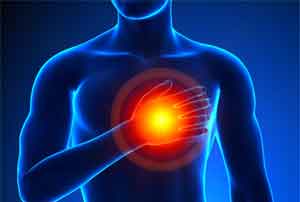- Home
- Editorial
- News
- Practice Guidelines
- Anesthesiology Guidelines
- Cancer Guidelines
- Cardiac Sciences Guidelines
- Critical Care Guidelines
- Dentistry Guidelines
- Dermatology Guidelines
- Diabetes and Endo Guidelines
- Diagnostics Guidelines
- ENT Guidelines
- Featured Practice Guidelines
- Gastroenterology Guidelines
- Geriatrics Guidelines
- Medicine Guidelines
- Nephrology Guidelines
- Neurosciences Guidelines
- Obs and Gynae Guidelines
- Ophthalmology Guidelines
- Orthopaedics Guidelines
- Paediatrics Guidelines
- Psychiatry Guidelines
- Pulmonology Guidelines
- Radiology Guidelines
- Surgery Guidelines
- Urology Guidelines
Anti-aldosterones in STEMI within 24 hour : Reminder Trial

Certain heart attack patients who have ST-segment elevation myocardial infarction (STEMI) are significantly more likely to survive if they are treated immediately with anti-aldosterone-type drugs in addition to standard therapy, according to new research presented at ESC Congress.
Formerly considered diuretics, mineralocorticoid receptor antagonists (MRAs) “are still underused in routine clinical practice, but our data may hopefully contribute to expanded use of these life-saving and low-cost drugs,” said study investigator Prof Farzin Beygui, MD, PhD, from the ACTION Study Group, and Centre Hospitalier Universitaire de Caen, France.
MRAs such as spironolactone and eplerenone can offset the damaging effect of high aldosterone levels which rise immediately after a heart attack augmenting the benefits of optimal standard therapy including reperfusion therapy, beta-blockers, dual antiplatelet therapy, statins and ACE inhibitors, explained Prof Beygui.
The study pooled data from the previously published ALBATROSS and REMINDER trials, both of which were underpowered individually to fully assess the impact of MRA regimens.
Although ALBATROSS (Aldosterone Lethal effects Blockade in Acute myocardial infarction Treated with or without Reperfusion to improve Outcome and Survival at Six months follow-up) failed to demonstrate the benefit of a spironolactone-based MRA regimen compared to standard therapy alone, it was tested in a mixed group of STEMI and non-STEMI patients. “There was a suggested potential significant mortality reduction in the STEMI subgroup, that was worth investigating further” he explained.
The REMINDER (Randomized, Placebo-Controlled Trial Evaluating The Safety And Efficacy Of Early Treatment With Eplerenone In Patients With Acute Myocardial Infarction) trial only included STEMI patients, and showed that eplerenone added to standard therapy within the first 24 hours, was more effective compared to standard therapy alone in reducing a clinico-biological endpoint.
For the current analysis, Prof Beygui and his team pooled results from the full REMINDER study group and the STEMI subgroup of ALBATROSS.
In total, across the two trials, 2241 patients were randomly assigned to the addition of an MRA to standard therapy (1118 patients) or standard therapy alone (1123 controls).
After a median follow-up of 190 days, there were significantly fewer deaths in the MRA-treated patients compared to controls (0.4 % vs 1.6%, stratified odds ratio 0.22; 95% CI 0.07-0.65, p=0.006).
“The evidence from our analysis is not as strong as from a specifically designed randomised trial, however, the reduction of mortality in STEMI supports the use of MRAs in this indication,” concluded Prof Beygui. “These findings highlight the need for more studies that are adequately sized and specifically designed to confirm the potentially major clinical benefit associated with these low-cost treatments.”

Disclaimer: This site is primarily intended for healthcare professionals. Any content/information on this website does not replace the advice of medical and/or health professionals and should not be construed as medical/diagnostic advice/endorsement or prescription. Use of this site is subject to our terms of use, privacy policy, advertisement policy. © 2020 Minerva Medical Treatment Pvt Ltd